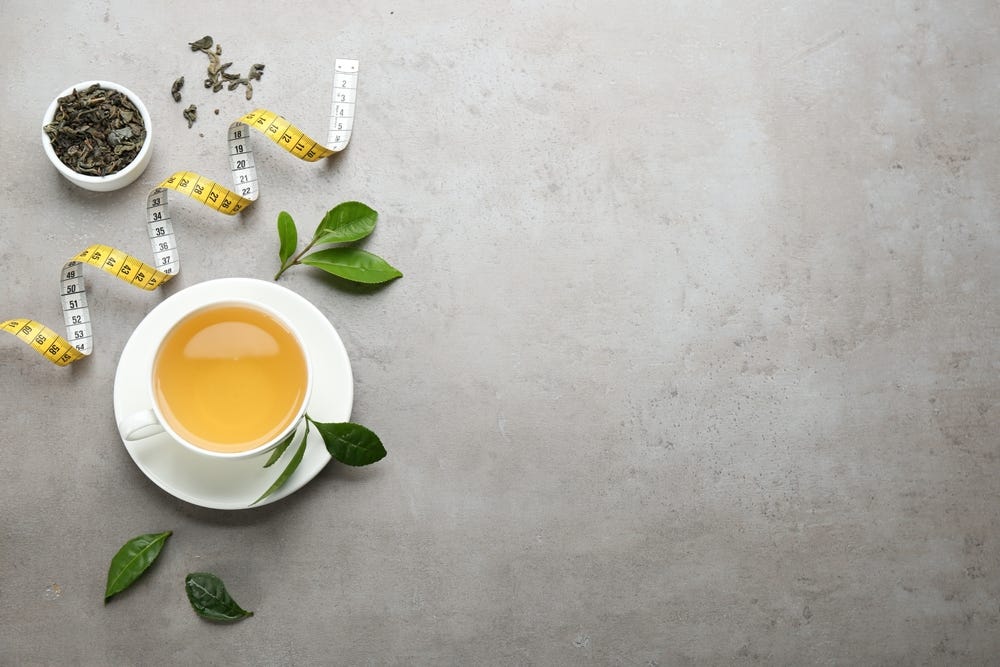Slim Tea vs. Green Tea: Which One Is Better for Weight Loss?
Weight loss is a major concern for many individuals seeking a healthier lifestyle. Among the numerous solutions available, teas have gained popularity due to their natural ingredients and metabolic-boosting properties. Among them, slim tea and green tea are two of the most discussed beverages for weight loss. But which one is more effective? In this article, we will compare slim tea and green tea, discussing their ingredients, benefits, and impact on weight loss to help you make an informed choice.
Understanding Slim Tea and Green Tea
What Is Slim Tea?
Slim tea is a blend of various herbal ingredients that claim to promote weight loss. The composition of slim teas varies depending on the brand, but they typically include ingredients such as:
Senna leaves – a natural laxative that helps in digestion and detoxification
Garcinia cambogia – a fruit extract known for suppressing appetite
Dandelion root – supports digestion and reduces water retention
Peppermint – aids digestion and reduces bloating
Licorice root – promotes gut health and reduces inflammation
Green tea extracts – boost metabolism and fat oxidation
Many slim teas also contain diuretics and laxatives, which can lead to short-term weight loss through water loss.
What Is Green Tea?
Green tea is a naturally occurring beverage made from Camellia sinensis leaves. Unlike black tea, it undergoes minimal oxidation, preserving its rich antioxidant content. Green tea contains:
Catechins (EGCG) – powerful antioxidants that boost metabolism
Caffeine – stimulates thermogenesis and fat-burning
L-theanine – promotes relaxation and reduces stress-induced cravings
Polyphenols – support heart health and overall well-being
Green tea is widely consumed for its numerous health benefits, including enhanced metabolism, improved brain function, and protection against chronic diseases.
Weight Loss Benefits of Slim Tea vs. Green Tea
How Slim Tea Aids Weight Loss
Slim teas claim to support weight loss through several mechanisms:
Laxative Effect – Ingredients like senna promote bowel movements, reducing bloating and giving a temporary feeling of weight loss.
Diuretic Properties – Dandelion and other herbs help eliminate excess water, leading to temporary weight loss.
Appetite Suppression – Ingredients such as Garcinia cambogia can reduce cravings, leading to lower calorie intake.
Boosted Digestion – Herbs like peppermint and licorice support digestion, reducing bloating and discomfort.
While these effects may lead to a temporary decrease in weight, they do not contribute to long-term fat loss. Most weight loss through slim teas is due to water loss and bowel movements rather than actual fat reduction.
How Green Tea Aids Weight Loss
Green tea is known for its ability to aid weight loss naturally and sustainably. Here’s how:
Increases Metabolism – The catechins in green tea enhance metabolic rate, allowing the body to burn calories more efficiently.
Enhances Fat Oxidation – Studies suggest that green tea boosts fat-burning, particularly during exercise.
Reduces Fat Absorption – Some compounds in green tea prevent the absorption of fat, reducing overall fat accumulation.
Promotes Satiety – The combination of caffeine and L-theanine in green tea reduces cravings and prevents overeating.
Unlike slim tea, green tea works on a long-term basis by promoting fat loss rather than just eliminating water weight or waste.
Potential Side Effects
Slim Tea Side Effects
While slim tea may seem like a quick fix for weight loss, excessive or prolonged use can cause:
Dehydration – Due to its diuretic properties
Digestive Issues – Frequent use of laxatives can lead to dependency and digestive discomfort
Electrolyte Imbalance – Excessive water loss can disturb the body’s balance of essential minerals
Fatigue and Weakness – Losing too much water weight too quickly can cause weakness and dizziness
Green Tea Side Effects
Green tea is generally safe for daily consumption, but excessive intake may lead to:
Caffeine Sensitivity – Some individuals may experience insomnia, jitteriness, or anxiety
Iron Absorption Issues – Green tea contains tannins that may interfere with iron absorption
Stomach Irritation – Drinking green tea on an empty stomach may cause nausea
Which Tea Is More Effective for Weight Loss?
When it comes to sustainable and healthy weight loss, green tea is the better option. Unlike slim tea, which primarily works by flushing out water and waste, green tea promotes fat oxidation and boosts metabolism, leading to long-term weight loss benefits.
How to Incorporate These Teas into Your Routine
If you choose to consume tea as part of your weight loss strategy, here’s how you can do so effectively:
Drinking Slim Tea
Consume in moderation (no more than a few times a week)
Avoid prolonged use to prevent dependency on laxatives
Drink plenty of water to stay hydrated
Drinking Green Tea
Consume 2-3 cups daily for best results
Drink before meals to reduce appetite
Combine with a healthy diet and exercise for optimal weight loss
Final Verdict
Both slim tea and green tea have their benefits, but for sustainable and healthy weight loss, green tea is the superior choice. It boosts metabolism, promotes fat oxidation, and supports overall well-being, whereas slim tea primarily results in temporary weight loss through water elimination and digestive stimulation. To achieve lasting weight loss, green tea combined with a balanced diet and regular exercise is the best approach.
Conclusion
Teas play a significant role in weight management, but it’s crucial to choose the right one for long-term benefits. While slim tea may provide temporary results, green tea is a more sustainable and healthier option for those looking to lose weight naturally. You can get and order your favorite tea from Hemani. Always consult a healthcare professional before starting any weight loss regimen, and remember that no tea alone can replace a healthy lifestyle.



